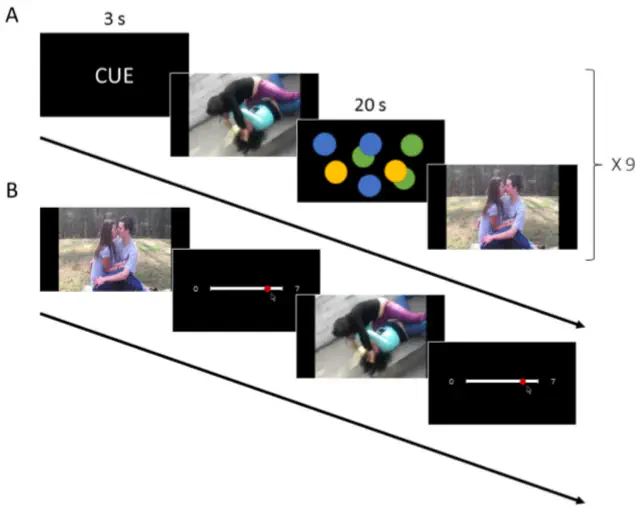The paradox of fiction: Emotional response toward fiction and the modulatory role of self-relevance

Abstract
For over forty years, philosophers have struggled with the “paradox of fiction”, which is the issue of how we can get emotionally involved with fictional characters and events. The few neuroscientific studies investigating the distinction between the processing of real and fictional entities have evidenced that midline cortical structures and lateral fronto-parietal regions are more engaged for real and fictional entities, respectively. Interestingly, the former network is engaged in autobiographical memory retrieval and self-reference, processes that are known to boost emotional reactivity, while the latter underpins emotion regulation. Thus, a possible modulation of the emotional response according to the nature (real or fictional) of the stimulus is conceivable. To test this hypothesis, we presented short emotional (negative and positive) and neutral video as fictional or real. For negative material, we found that subjective emotional experience, but not physiological arousal measured by electrodermal activity, was reduced in the fictional condition. Moreover, the amount of personal memories linked to the scenes counteracted this effect boosting the subjective emotional response. On the contrary, personal memories elicited by the scenes, but not fiction, modulate the emotional response for positive material. These results suggest that when a stimulus triggers a personal memory, the emotional response is less prone to be modulated by contextual factors, and suggest that personal engagement could be responsible for emotional reaction toward fiction. We discuss these results in the emotion regulation framework and underline their implications in informing theoretical accounts of emotion in the neuroscientific domain and the philosophical debate on the paradox of emotional response to fiction.